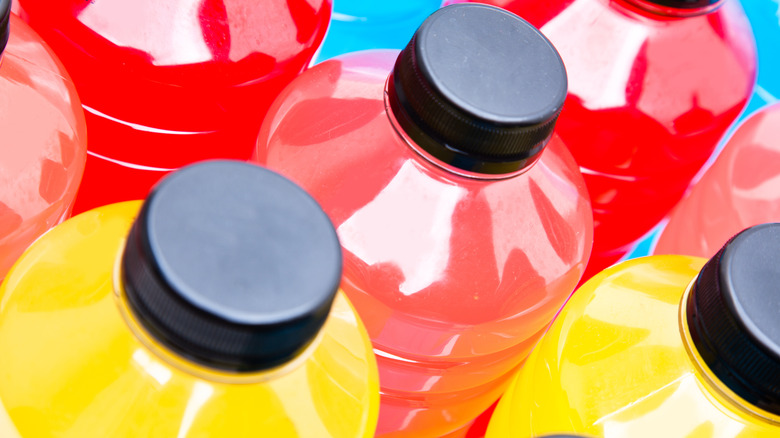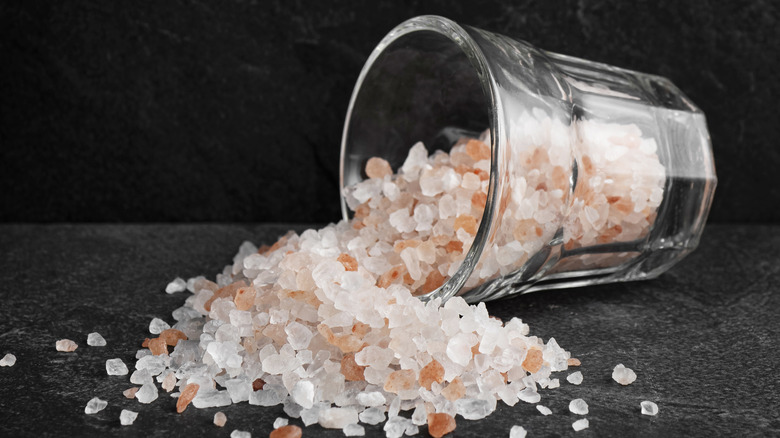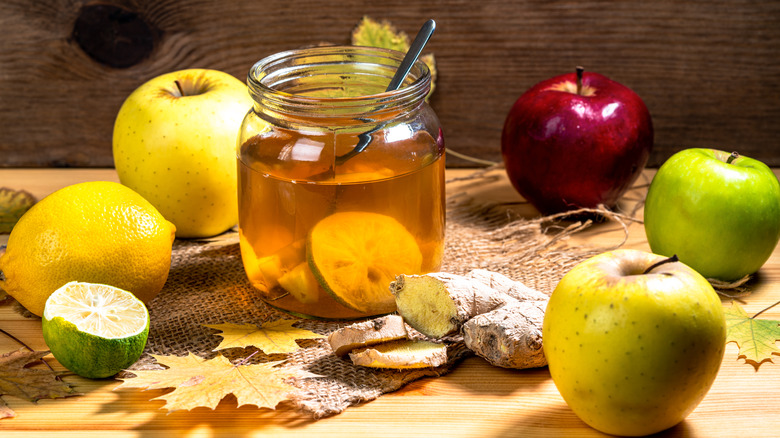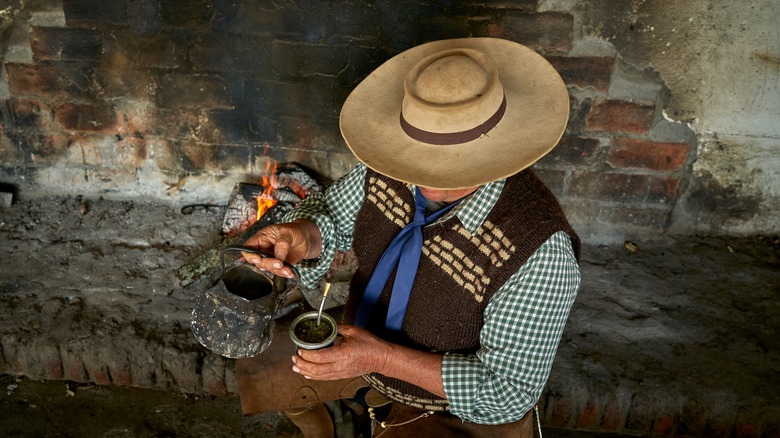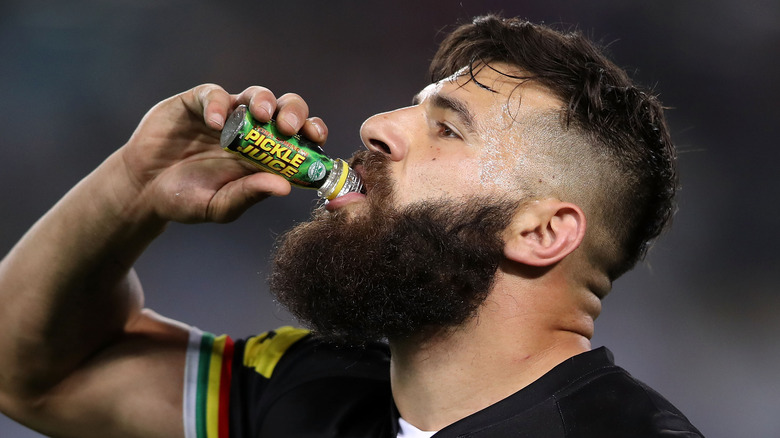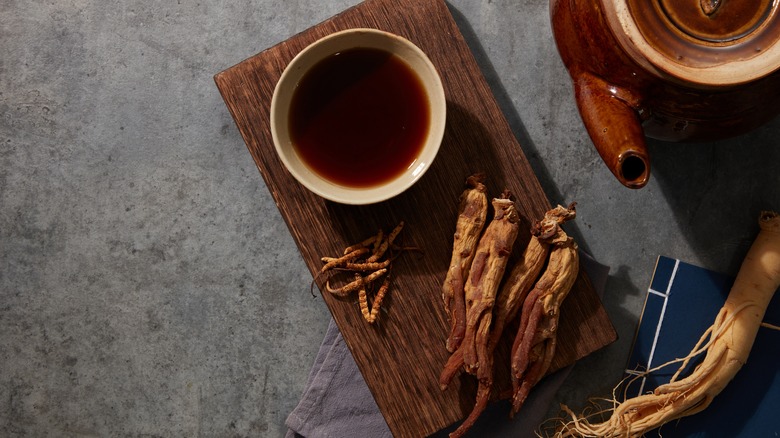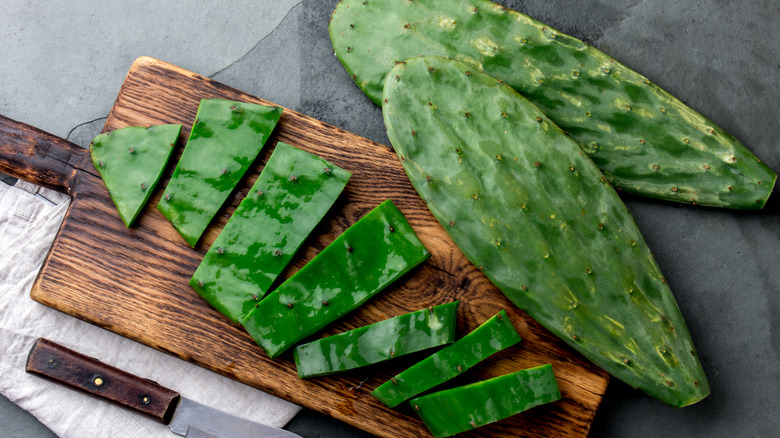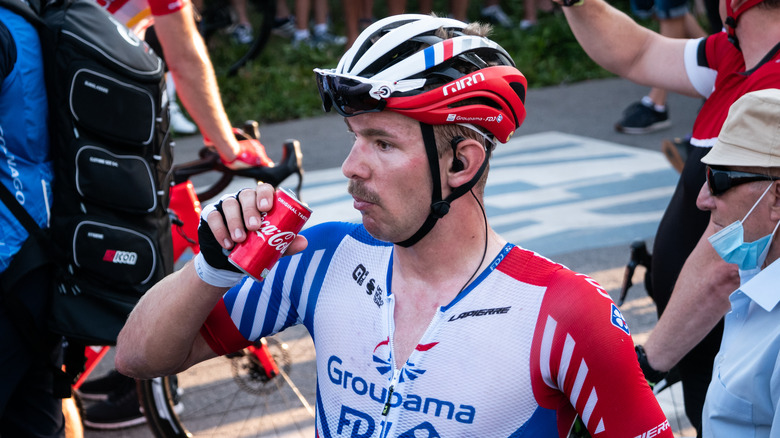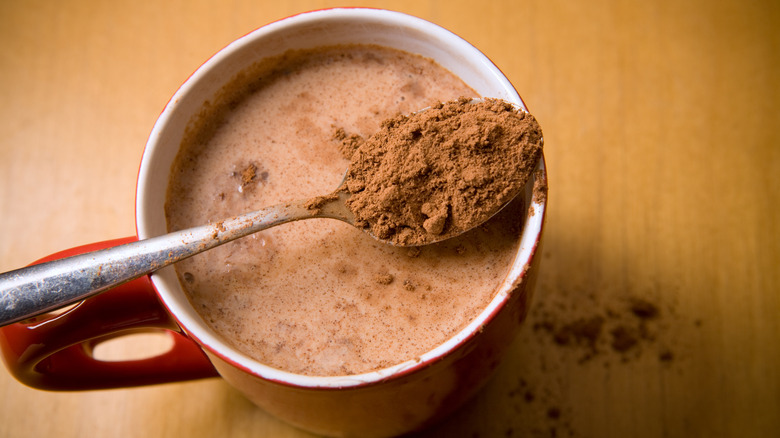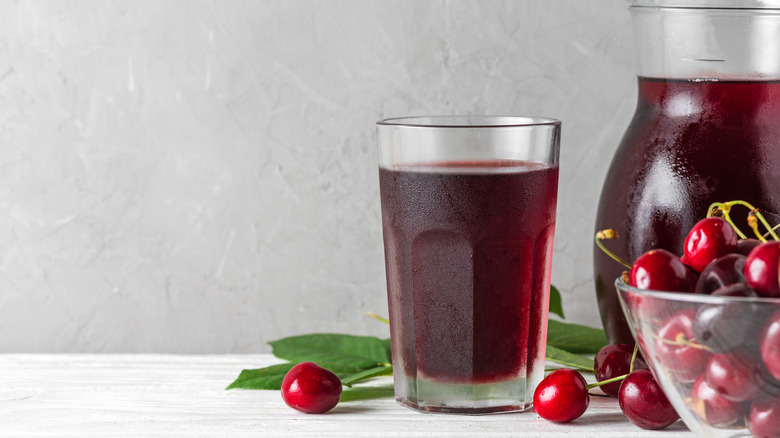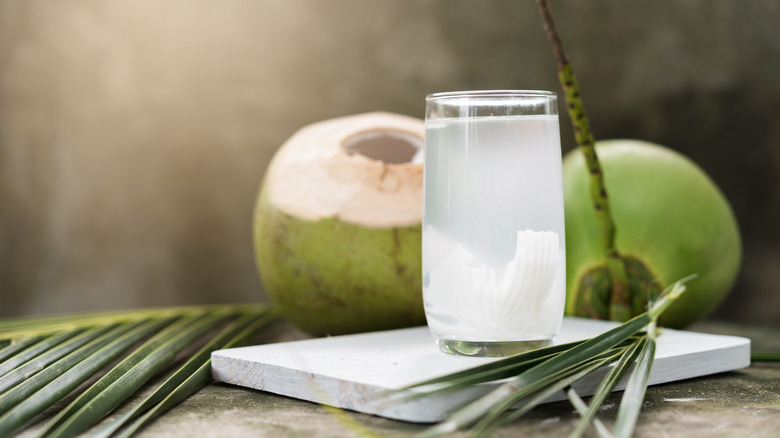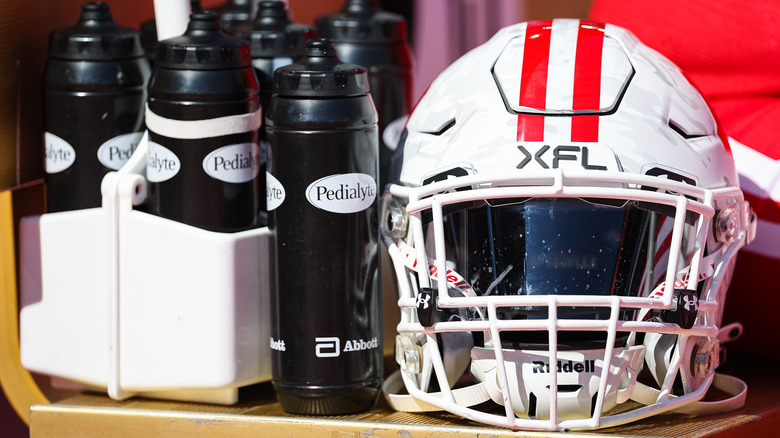11 Unexpected Alternatives For Sports Drinks
Wake up, sheeple. Your favorite sports drink is lying to you.
Think about it. Who wants to guzzle a Gatorade after their thirst has been quenched or after their hangover is cured? Those cheeky beverages have a financial incentive to keep you thirsty. It's like planned obsolescence in the hydration market.
Okay, that might sound a little like conspiratorial thinking ... or, maybe it sounds exactly like conspiratorial thinking. Still, you don't need a Powerade to finish off your workout. There's a solid chance that your Gatorade is not doing much more than water would towards improving your athletic performance. Thanks to the internet, we can even easily find research that says there are real benefits to drinking beer after workouts. If it's liquid, you can drink it at some point before, during, or after exercise.
Sports drinks get their kicks from the addition of electrolytes, but they aren't the only ones that store lightning in a bottle. There are plenty of household ingredients and natural roots, plants, and stems that bring well-rounded refreshment flushing down your shoulders just as if you won the Superbowl.
1. Salty sugar water
Most sports drinks are simply some combination of salt, water, sugar, and an extra splash of glacier freeze. You're probably thinking, "What about electrolytes?" It's true that some commercial sports drinks like Gatorade will also add electrolytes. In Gatorade's case, those electrolytes are sodium and potassium. Do you know what else includes sodium and potassium? Sea salt.
Big Drink doesn't want you to know you can easily replicate sports drinks at home, likely with ingredients you already have in your kitchen. For a more effective energy drink, opt for sea salt over table salt, as table salt production often strips away valuable minerals like magnesium and potassium. Sea salt is a must-have in your kitchen, and not just for DIY refreshments.
Grab a bottle of water, saunter on into your cabinets, and sprinkle in a tablespoon of sea salt with five spoonfuls of sugar. That's all there's to it. You can make your rehydration as complicated as you like by adding lemon or lime, coconut water, or Himalayan pink salts. Mixing in some of these other ingredients to round out your electrolyte regimen is not a bad idea, but the core of a great endurance beverage is salt, sugar, and water.
2. Switchel
Long before electrolyte water was powering the Florida Gators, the United States Congress was sipping switchel as they formed the foundation of our country.
Also known as the Haymaker's Punch or the energy drink of Colonial America, switchel — defined in "Stories of George Washington" as "a mild and moralizing malmsey" – was the new world's first big sports drink. Classic switchel is water flavored with a base of vinegar, sweetener, and ginger, which is a list of ingredients that sound better suited for a tofu marinade than a hydration specialist, but that's exactly what it is.
At the height of switchel, nobody knew what an electrolyte was, but the vinegar-based drink was full of them. Apple cider vinegar, sugar, and ginger are all loaded with electrolytes like sodium, potassium, calcium, magnesium, and several other vitamins and minerals that are exactly what you need in the middle of a strenuous workout.
If you stick with those base ingredients, everything else you add is just for kicks; some folks favored molasses, others preferred maple syrup. Some added brown sugar, and others, like the founding fathers, might have flavored it liberally with rum while they were on the clock and trusted in the electrolyte drink to continue building a nation powered by spiked punch.
3. Mate
The Argentina national soccer team had some help gaining its third World Cup title in 2022 – 1,100 pounds of yerba mate.
For certain South American countries, mate is a way of life. If you're in, you'll drink it before, during, and after sports and studying, and some folks won't even hesitate to down a caffeinated gourd or two before bedtime.
Mate is most often seen first as a substitute for coffee, mainly because it contains caffeine and doesn't contain any sodium. That means it likely won't hydrate you in the same way that a sports drink would, but that hasn't stopped athletes from using mate as a training beverage.
The jury is still out on exactly why it works. There are thousands and thousands of firsthand accounts of the tea being beneficial to your mental and physical wellness and providing a more well-rounded boost than caffeine. The only thing that's really missing is much in the way of bona fide scientific studies to back up these accounts.
While we wait for those to come along, you can take the word of some of the world's best footballers, even a few who have never stepped foot in mate country, who swear by its effects as a training drink. If it's good enough for Lionel Messi, it should be good enough for whatever you've got going on this afternoon.
4. Pickle juice
If this article was titled, "The best alternatives for sports drinks," pickle juice would not be on here. But that's not why we're here today, so let's keep it weird. Pickle juices are chock full of electrolytes — namely sodium, potassium, and magnesium. These are key ingredients for rehydration, proven to help whether you're recovering from a big night out or in the middle of a grueling workout.
"Okay, but so does Gatorade," you might say. And you might think, "Hmm ... only one of those things can be enjoyed sans guzzling down cucumber brine." So why would anyone go for this particular sports drink alternative? It turns out it does way more than just rehydrate you.
In addition to being a quirky alcoholic beverage chaser, tennis professionals have been known to down pickle juice like Kool-Aid to help fend off cramps between sets. In clinical trials, pickle juice has been demonstrated as more effective than water at relieving cramps. Apparently, the same acid reflux that makes us gag when the juice is on its way down sends signals across the body to stop cramping. So, unless Powerade makes you gag, maybe you should switch to pickle juice for instant relief.
5. Ginseng
As far as we can tell, the World Health Organization has never put out a study on the effectiveness of Bodyarmor sports drinks. They have, however, confirmed through clinical trials that ginseng can boost the body's ability to recover from weakness, exhaustion, and tiredness. That sounds a lot like the goal of any great sports drink.
Once dubbed by the LA Times as "the root of all sports drinks," ginseng is most commonly brewed as a tea, but it's also available in powders, chewable roots, pills, and it's in Monster Energy drinks. However, you should always be slightly wary about purchasing premade drinks that contain ginseng. While we can't confirm the exact amount of ginseng in a serving of Monster, we can tell you that only a quarter of major energy drinks that advertise ginseng as an ingredient contain 200 milligrams — enough to meaningfully enhance cellular blood glucose uptake, which is a fancy way of saying enough to do the trick. Arizona Tea was even sued after two separate lab studies could not detect any trace of ginseng in the brand's Green Tea with Ginseng and Honey.
You're better off with a homebrew, either by stopping between sets for a hot ginseng tea or blending a few teaspoons of ginseng powder into your preferred workout mix.
6. Cactus water
Finally, there's a good reason to drink cactus water without going to a sweat lodge.
Here's a fun fact: All cacti have water in them, but there is only one type of cactus that supplies "cactus water." Cactus water is liquid from the prickly pear or Nopal cactus – the only pink fruits that cactus water comes from.
And before you start yelling, "What about aloe vera!?" into the desert winds, keep in mind that aloe vera is not a cactus. It might share a similar vibe, but it's a member of the Asphodelaceae family.
The Cactaceae family flows directly through the prickly pear. Luckily, the family is in good hands. Prickly pear has dropped some pretty major hints in scientific studies that point towards its ability to help regulate blood pressure and reduce inflammation. In addition, it apparently includes plenty of electrolytes and other natural hydration aids. There's plenty of potential in a prickly pear to provide the hydration you need to get through your workout.
7. Coca-Cola
What do Tour de France riders and 5-year-olds have in common? They both love a good sugar rush. Endurance bike riders have been known to throw back a can of Coke or two in the middle of a tough ride. If elite athletes can drink Coke in the middle of the Tour, why can't you have a Coke in the middle of a pick-up game?
Signs suggest that Coca-Cola can provide much-needed glucose and a caffeine hit to help endurance athletes power through the back half of long races. We're talking ultra-marathoners, triathletes, iron man participants, and riders spending three weeks racing road bikes over thousands of kilometers. Either cold and straight out of the can or flat to lower the risk of gastric upset, athletes reported a boost in energy after downing some soda.
There's one major caveat to Coke's effectiveness: distance. All the athletes we mentioned are typically drinking their sodas when they're about halfway through a marathon or about to bike up a mountain. Soda's benefits simply don't hold the same weight for most day-to-day activities, not to mention it completely lacks electrolytes. Still, whether or not Coke really brings an advantage, we can't see any reason not to go ahead and give one a few chugs during your next workout and see what happens.
8. Cacao powder
The more we researched this piece, the more we couldn't stop coming across evidence leading to milk as one of the best drinks to keep you hydrated. Only, we just couldn't stomach calling milk a sports drink alternative; the idea of someone leading their team on a long drive, settling for a field goal, and coming off the field for a frosty glass of 2% is too much for us to mentally process.
But then we found out there was a way to make milk even healthier and provide even more benefits, so we decided to meet milk in the middle by focusing on cacao powder — a great ingredient to mix with milk for recovery or water for exercise.
We would still have a tough time imagining Patrick Mahomes sitting on the bench and swirling around a silver spoon while he mixes Nesquik, but maybe that's because any old processed chocolate powder won't cut it. Nesquik adds a negligible amount of potassium and sodium and nothing else. You need the big guns to improve athletic performance.
Cacao powder is considered chocolate in its rawest form. It's the most unprocessed way to eat chocolate and is naturally loaded with electrolytes and energy-boosting theobromine. While it might not be the most delicious sports drink, two tablespoons of cacao powder stirred into water or store-brand cacao water can slot right into your workout routine and has shown a lab-tested ability to help you exercise stronger for longer.
9. Tart cherry juice
Tart Cherry Juice is slowly becoming the preferred sports drink at bedtime. TikTok dieticians and USWNT soccer players are finding ways to add a few ounces of tart cherry during their post-practice and during their nighttime routines in hopes of sleeping smoothly and waking up with less soreness.
While it might not have been enough to push the team through the 2023 World Cup, there's plenty of evidence for tart cherry's efficacy as a sports drink. It provides a zestier option that's all about sweet dreams and even sweeter recoveries. In 2009, a study of marathon runners who drank tart cherry juice during the five days leading up to their run showed that the cherry juice helped them recover faster than the control group. That finding was backed up in 2021 when data from 14 different studies was analyzed by researchers who came to the conclusion that cherry juice aids recovery.
This juice is best specifically before bedtime because it's a natural source of melatonin, but there's way more to tart cherry than sleep aid. It's also packed with anti-inflammatory and anti-oxidizing properties that help your muscles recover faster. The sports drink alternative also has a fair share of electrolytes like magnesium and potassium but be warned: They don't call it tart for nothing. The astringent liquid severely lacks sodium, and you can taste it.
10. Coconut water
The doctor who told Harry Nilsson to put a lime in the coconut and drink 'em both up was on to something. Coconut water is one of the most delicious drinks on our list and one of the easiest to make, as long as you don't have to take a machete to the palm tree yourself.
If you take one thing from this article, let it be this: Lots of coconut water beverages add sugar for no good reason. Pure coconut water comes from a plant that can be considered a fruit, nut, and seed.Those three building blocks of life have come together as a meaty dry sphere packed with enough sugar and carbs to sustain you on its own. All you need is coco, so look for a bottle with only one ingredient.
Without adding powders, milk, or roots, the best coconut water brands stock grocery store shelves with a sports drink alternative with more potassium and less sugar than Gatorade. Traditional sports drinks have a slight edge in sodium, but coconut water also includes magnesium and calcium, which many beverages completely leave out.
11. Pedialyte
You don't have to look further than your local pharmacy's infants and toddlers' section for a great sports drink alternative. Pedialyte is an over-the-counter electrolyte drink whose original purpose was to help sick kids rehydrate, built based on the World Health Organization's recommended oral hydration solution composition for rapid rehydration. Each 12-ounce bottle of classic Pedialyte contains four key electrolytes including zinc, an electrolyte not found in most sports drinks but associated with building muscle. Equally impressive is what Pedialyte doesn't contain — the drink only has 9 grams of sugar, which is remarkably less than most leading sports drinks.
Pedialyte maker Abbott is starting to catch on to its drink's potential as an all-ages hydration solution and is branching out from baby wipes and tiny shoes onto the offensive. At first, Pedialyte's all-ages campaign largely focused on the drink's benefits as a hangover cure, but the drop of a sports blend with 33% more electrolytes than classic Pedialyte firmly cemented the brand as a serious sports drink alternative. No matter which Pedialyte option you reach for, you'll fuel your workout with more sodium and less sugar than other leading sports drinks.
